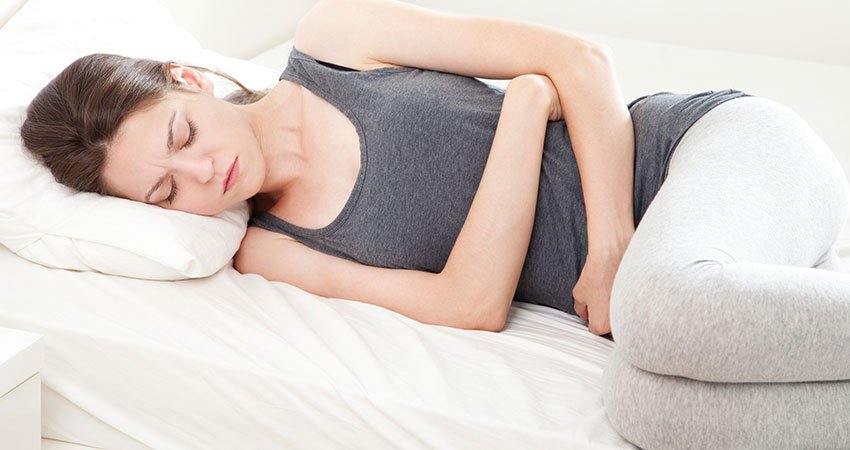For the majority of a woman’s reproductive life, the regularity of her menstrual cycle is closely associated to her well-being, while an irregular menstruation can often be a sign of abnormal activity in the body. In some instances, Uterine Fibroids are the cause of these abnormalities. For more information on the types of fibroids and steps you can take towards effective fibroid treatment, contact the top fibroids specialist in Los Angeles, Dr. Bruce McLucas for a consultation.
The three types of fibroids: intramural, subserosal, and submucosal can produce different symptoms based on the size and location of the fibroids. Intramural and submucosal fibroids are usually the cause of heavy or abnormal bleeding during a menstrual cycle.
While the main reason for these symptoms are unknown, abnormal bleeding is believed to be caused by the way fibroids change the muscular contraction of the uterus which can prevent it from controlling the amount of bleeding during a cycle. Fibroids have also been shown to compress veins in the uterine wall, creating a dilation of the uterine lining. As the pressure increases in the veins, the lining of the uterus expands, and may result in abnormal bleeding. Heavy menstrual bleeding is usually caused by either intramural fibroids found deep within the wall of the uterus, or submucosal fibroids, found just under the inner lining of the uterus.
Heavy and abnormal bleeding not only increases clot formation, but can also prolong periods, lead to weakness, fatigue, painful cramps in the abdomen and back, and in some cases anemia. Women who have experienced heavy or difficult periods may often not consider fibroids a viable reason for the irregularity in their cycle. If you undergo any of these abnormal symptoms or suffer from overnight excessive flow, consistent bleeding through super tampons or maxi pads, consider making an appointment with your ob/gyn to see if fibroids may be the cause.
Fibroids Specialist in Los Angeles
If fibroids are the cause of your heavy or painful menstrual cycle, don’t delay in seeking effective treatment from a qualified fibroids specialist in Los Angeles. Uterine Fibroid Embolization is a non-surgical procedure especially suited for today’s active, and busy lifestyle. It’s also a great alternative treatment for younger women who may wish to have children because it protects fertility by not cutting, removing, or scarring any uterine tissue. For more information on how embolization can put an end to irregular menstruation, contact The Fibroid Treatment Collective at (866) 479-1523.


